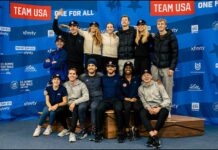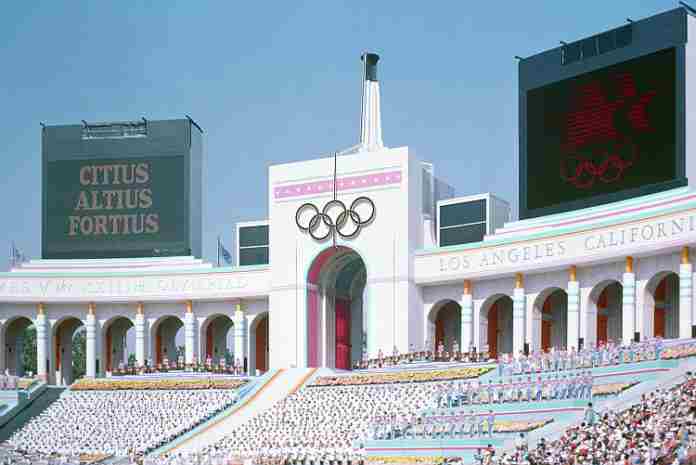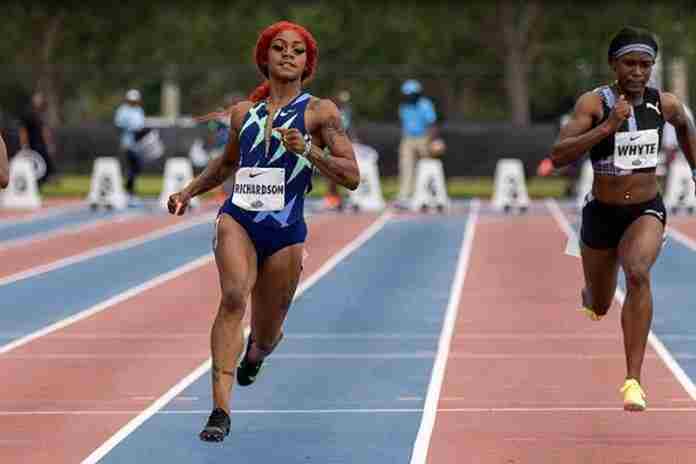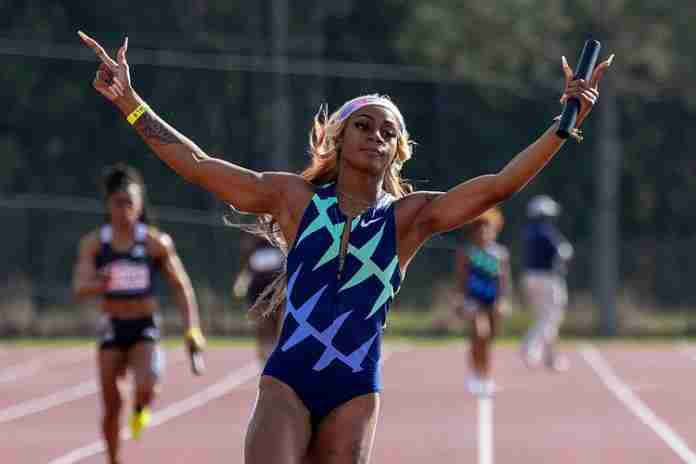(For our Highlights of last week’s top national and
international sports competitions, click here.)
In today’s edgy, confrontational, only-my-facts-are-right environment, even experts sometimes go astray. A wholly fictional, April Fool’s post on the highly-respected GamesBids.com site “reported” – in fun – that entrepreneur Elon Musk had contacted the International Olympic Committee to inquire about hosting an Olympic Games himself. It included:
“With many cities dropping out of recent bid races due to the public pushback of projects deemed too expensive and too risky, the IOC has been searching for more viable solutions. There has never been a privately organized and financed Olympic Games, but after successfully privatizing space travel – Musk might be the best person to privatize hosting the Olympics.”
Wait, just wait right there.
Let’s not even say in jest that “There has never been a privately organized and financed Olympic Games.” Because the little organizing committee that could – the Los Angeles Olympic Organizing Committee – did just that for the Games of the XXIIIrd Olympiad in 1984.
In correspondence with the GamesBids.com editor, Canadian Robert Livingstone, I asked for a change in the story to ensure that no one, reading this April Fool’s post, would take that idea from the piece and believe it.
Livingstone noted the concern, but explained that “from what I understand the ‘84 host city contract was signed by the Mayor, representing ‘some kind of’ public undertaking, where the Elon Musk proposal would, in theory, be signed by himself – a private citizen.”
Stop. No. Not for a moment.
I replied that the “host city agreement,” which was a one-page telex (!) signed in October 1978, included this key paragraph:
“The [organizing committee] will assume all commitments set forth in this agreement in accordance with the attached IOC Charter 1978, the attached responses and the attached minutes of the presentation by the City of Los Angeles at the IOC Athens Session, thus relieving the City of Los Angeles from responsibility and/or liability for any obligations incurred in the organisation or operation of the Games. Notwithstanding any other provisions to the contrary, the City of Los Angeles shall be neither responsible nor liable for any obligations incurred in the organisation or conduct of the Games in accordance with Rules 51 and 52.”
My note continued: “From the very award of the Games to Los Angeles, the IOC clearly understood it was giving the Games – lock, stock and barrel – to a private organizer (which became the Los Angeles Olympic Organizing Committee), which would be responsible, not the City in any way. The Games was not given to the City of Los Angeles, which was later allowed to transfer its interest; the Games was handed to a private organizer and all sides knew this from the very beginning, as it was a key element of the bid.
“This is the reason I must insist that the 1984 Games be recognized as privately organized and financed from the very start. To say that a future Games given to Elon Musk or someone else would be a first is true only to the extent it would be handed to an individual and not an entity. But the Southern California Committee for the Olympic Games (later, LAOOC) was handed the Games as a private organization in 1978.”
To his credit, Livingstone attached a clarification noting my comments, so no one reading the post in the future will be confused. There are revisionist historians still circulating wholesale falsities about the private financing of the Games of the XXIIIrd Olympiad; they are liars of the first order.
Now almost 37 years after the 1984 Games, the facts speak for themselves:
● First completely, privately financed Olympic Games in history
● ~$781.7 million in revenue ($1.99 billion in 2021 dollars)
● ~$549.2 million in expenses ($1.40 billion in 2021 dollars)
● ~$232.5 million in surplus ($592.7 million in 2021 dollars)
● $2.30 billion in net economic impact ($5.86 billion in 2021 dollars)
These figures are updated from the last audited financial statements of 31 March 1985 and account for additional commemorative coin revenues and refunds due the not-for-profit LAOOC, plus expenses to the actual dissolution date of 11 June 1986.
The former Times of London sports editor and long-time IOC historian David Miller (GBR) wrote in the Sport Intern newsletter in July 2014:
“Los Angeles ’84, privately budgeted without a dollar of public money, rescued the IOC.”
(What about the Games of the Xth Olympiad in 1932? The Tenth Olympiad Committee was initially funded by a voter-approved California state bond of $1 million in 1929. Happily, there was a stunning, first-ever surplus of $1.25 million (about $24.85 million in 2021), and the bond was repaid with interest – $1,053,733 – with the remaining surplus of ~$196,267 (about $3.90 million in 2021), given to city and county of Los Angeles.)
The impact of the 1984 Games and its financial innovations hardly ended at the Closing Ceremony. It continues today in Los Angeles through the work of the LA84 Foundation, created in 1985 with 40% – $93.0 million – of the LAOOC surplus. As Founding Chairman John Argue – the man most responsible for bringing the 1984 Games to Los Angeles – put it, the Foundation’s goal was “to put bats and balls in the hands of boys and girls.”
According to the LA84 Web site, the results have been impressive: 3.9 million kids impacted, more than 193,000 coaches trained and grants made to 3,300 non-profit organizations in the Southern California area.
Under current Chair Debra Duncan – an LAOOC star in her own right, in the ticketing department – and current President Renata Simril, LA84 has developed the “Play Equity” concept to get more and better sports opportunities for children in Southern California. This work developed in part from a crucial commitment to research in its Youth Sports Participation survey, with revealing insights into the problems and solutions which are at hand.
Although LA84 no longer provides a financial summary of its long-term impact – the last accounting was in 2014 – reference to subsequent tax filings shows how the Foundation has stayed financially healthy and able to expand its efforts:
● Formed 1985 with $93.0 million in LAOOC surplus
● Spent $153 million+ on grants & sports programs
● LA84 assets maintained at $163 million today!
There has also been more than $41 million spent on education, including the formation and expansion of the LA84 Sports Knowledge Center, one of the finest sports libraries in the world.
The other 60% of the LAOOC surplus went to the United States Olympic Committee (40%) and the U.S. National Governing Bodies (20%). The USOC’s share of the surplus and proceeds from U.S. commemorative coins issued celebrating the 1984 Games was $111.4 million and formed the corpus of the U.S. Olympic Foundation (now the U.S. Olympic Endowment). From that baseline, those funds have provided more than $330 million in Olympic-related grants through mid-2019, while the net assets have grown to $209 million.
The 1984 Games is, quite literally, the gift that keeps on giving, not only financially but in the way events are organized, staffing and staged. Let no one ever say differently.
Rich Perelman
Editor
You can receive our exclusive TSX Report by e-mail by clicking here. You can also refer a friend by clicking here, and can donate here to keep this site going.
For our updated – as of 1 May – 506-event International Sports Calendar for 2021 and beyond, by date and by sport, click here!






















